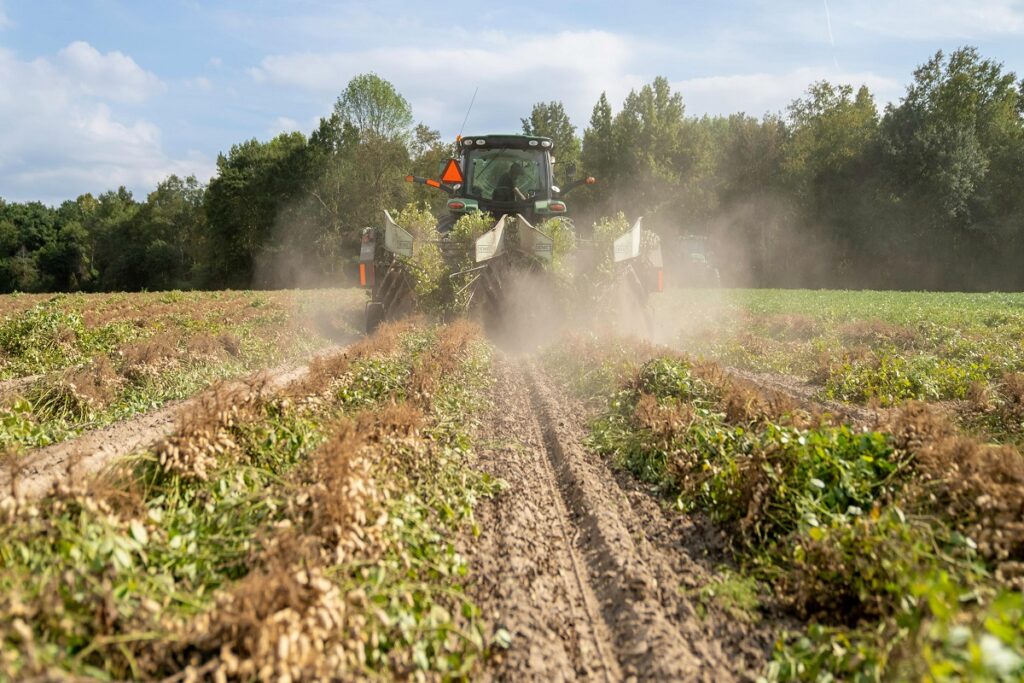Georgia, known as the Peach State, has another crop that it excels in producing: peanuts. The state is the largest producer of peanuts in the United States, accounting for almost half of the country’s peanut production. The ideal combination of Georgia’s warm climate and sandy soil makes it the perfect place to grow this beloved legume.

Peanuts are a vital crop in the state of Georgia, not only for economic reasons but also for cultural and historical significance. Georgia’s relationship with peanuts dates back to the 1800s when the crop was first introduced as a rotational crop. In the 1900s, the development of agricultural technology made it possible to cultivate peanuts on a larger scale, and the state’s peanut industry began to flourish.
Today, peanuts are an essential part of the state’s economy, with Georgia producing over 2 billion pounds of peanuts annually. The crop is grown in over 20,000 farms across the state, with the majority of the farms located in the southwestern part of the state.
One of the main reasons for Georgia’s success in peanut production is its climate. The state’s warm temperatures provide an ideal growing environment for peanuts, with the crop requiring a minimum of 120 frost-free days to reach maturity. Georgia’s climate provides more than enough frost-free days, allowing farmers to grow the crop successfully.
Additionally, the sandy soil in Georgia is also well-suited for growing peanuts. The crop requires well-draining soil to prevent waterlogging, and sandy soil provides excellent drainage. The sandy soil in Georgia also allows for easy cultivation and harvesting, solutions to enhance your home’s safety making it an efficient crop to grow.
Georgia’s peanut production is not limited to just one variety of peanut. The state grows four main types of peanuts: Virginia, Runner, Spanish, and Valencia. Each variety has different characteristics, and farmers choose the variety that is best suited for their specific growing conditions.
Virginia peanuts, also known as “cocktail” peanuts, are typically used for snacking and are larger than other peanut varieties. Runner peanuts are commonly used for peanut butter, and Spanish peanuts are known for their high oil content and are used for making peanut oil. Valencia peanuts are used for roasted peanuts and candy bars.
Peanuts have a significant economic impact on Georgia, with the crop generating over $1 billion annually in revenue. The crop creates jobs for over 30,000 Georgians, including farmers, processors, and truck drivers. The state’s peanut industry also contributes to the local economy by supporting businesses such as restaurants, hotels, and gas stations.
Beyond the economic benefits, peanuts also have cultural and historical significance in Georgia. The crop has been a part of the state’s culture for over a century, and Georgia celebrates this heritage with the annual Georgia Peanut Festival. The festival takes place in Sylvester, Georgia, and is a celebration of the peanut crop and its importance to the state.
In Georgia’s warm climate and sandy soil make it the ideal place to grow peanuts. The state’s peanut industry has a significant economic impact, creates jobs, and contributes to the state’s cultural and historical heritage. Georgia’s success in peanut production is a testament to the state’s agricultural expertise and its dedication to producing high-quality crops